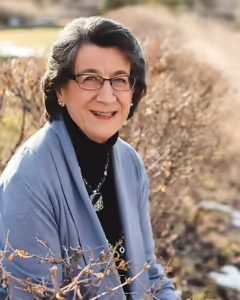Finding God’s Kingdom as We Age
Those of us in the third third of life know that growing older is a moving target. It happens every day. Some days growing older feels like a good idea. Other days it is one of the most difficult things we have ever done. Every day we need to remember Jeremiah’s instruction to pay attention to what is happening in our lives. “Let’s take a good look at the way we’re living,” Jeremiah says, “and reorder our lives under God” (Lamentations 3:40, MSG). God invites us to pay attention and re-order our lives, especially during this liminal time of growing older. How have we changed? What have we lost? What are God’s invitations to us to us in these losses? What do we need to “re-order” now that we are in our 60s, 70s, and 80s?
The Challenges of Growing Older
I am four years older than I was when I started writing Aging Faithfully [1] and I have changed. Some of the changes are wonderful. I love the invitations from God to live my life more freely. I love spending more time in quiet and less time in rushing. I love not being responsible to do all the things I did when I was younger.
But growing older is not easy. All of us who age will experience things we don’t like. The losses as we age come at different times and in different ways. For some of my friends the losses show up in declining opportunities to serve and to minister. For others they show up in the lost paycheck and the lethargy that comes from not going into the office. Others feel the losses of not leading a team or engaging in stimulating conversations with colleagues. What the losses are and when they occur is unique to each one of us. Some of our losses are so subtle we only notice with hindsight. But noticing them is the first step to learning from them.
One of the most difficult changes in my own life is my continuing fatigue. I keep running out of energy before I finish my to-do list—some days before I even start it! I find myself resisting this personal experience of aging and doing all I can to turn the clock back. On a particularly difficult day, I complained to God. “I just can’t do this! I keep getting tired earlier and earlier in the day!” This was too much for me. And this time I was afraid God would not be able to comfort me.
Jesus’ Teachings Bring Comfort to Us as We Age
Then my mind began to focus on Jesus’ first beatitude as recorded in Luke. “Blessed are you who are poor,” he said, “for yours is the kingdom of God” (Luke 6:20, NIV). The Message reads, “You’re blessed when you’ve lost it all. God’s kingdom is there for the finding.” Now the Holy Spirit had my attention. I had not literally lost “everything,” and I admitted to the Spirit and to myself that I still had a little energy. The new thought for me was that perhaps I could find God’s kingdom in my fatigue. Wow. What could that mean?
 Thankfully, Jesus addressed my question when he described the kingdom of God in his parables. Jesus said that the kingdom of God is like a tiny mustard seed (Matthew 13:31). Perhaps, I thought, I can find the kingdom of God in the small amount of energy I have. Perhaps my limited energy will produce more than I expect. Then I thought about the next verse in Matthew 13 where Jesus said the kingdom of God is like yeast that leavens flour to become a loaf of bread. Apparently God uses very small things to create very big things.
Thankfully, Jesus addressed my question when he described the kingdom of God in his parables. Jesus said that the kingdom of God is like a tiny mustard seed (Matthew 13:31). Perhaps, I thought, I can find the kingdom of God in the small amount of energy I have. Perhaps my limited energy will produce more than I expect. Then I thought about the next verse in Matthew 13 where Jesus said the kingdom of God is like yeast that leavens flour to become a loaf of bread. Apparently God uses very small things to create very big things.
As I continued to muse, I remembered another parable. This one seemed like a story Jesus was telling just for me.
“God’s kingdom is like seed thrown on a field by a man who then goes to bed and forgets about it. The seed sprouts and grows—he has no idea how it happens. The earth does it all without his help: first a green stem of grass, then a bud, then the ripened grain. When the grain is fully formed, he reaps—harvest time!” (Mark 4:26-29, MSG)
This is a comforting, and disturbing, story. It is comforting because as we age many of us notice that we forget more things and that we need more rest and sleep. Jesus’ story reminds me that when I forget something I “should” remember and when I have to go to bed before my work is done, God understands. The kingdom of God is a good place to be as we age.
But Jesus left something out. He never said who tended the field while the man slept. Who weeded and fertilized the crop? How did the seeds grow without careful work? Since I have spent decades “tending the fields” of my life, it is unsettling that Jesus didn’t answer these questions. And it is even more unsettling that as I age, I can’t tend to the things that used to be so important to me. In Jesus’ silence about these questions there is an invitation to a paradigm shift in my relationship to God, to myself, and to others.
 My focus has been on what I should be doing for the kingdom of God, on how I should be cultivating the harvest. It would have been unthinkable to me in my younger years not to carefully tend the fields. Now God is telling me to toss out the seeds I have, and then go to bed. How can this be? A few years ago I would not have even taken a nap if I thought the weeds were growing!
My focus has been on what I should be doing for the kingdom of God, on how I should be cultivating the harvest. It would have been unthinkable to me in my younger years not to carefully tend the fields. Now God is telling me to toss out the seeds I have, and then go to bed. How can this be? A few years ago I would not have even taken a nap if I thought the weeds were growing!
In these senior years God is inviting me to believe that God does “more than all we ask or imagine“ (Ephesians 3:20, NIV). “He does it not by pushing us around but by working within us, his Spirit deeply and gently within us” (Ephesians 3:20, MSG). This is comforting to me as I face my growing fatigue.
Practicing Humility as We Age
But it is also a blow to my ego, a crash course in humility. The losses that come with the experience of aging remind us every day that our lives are not about us but about God. Like Adam and Eve our temptation is to try to “be like God” (Genesis 3:4, NIV). That gets harder and harder as we age. We are humbled, and often embarrassed, by what we can no longer do. Peter wrote to the early church, “Humble yourselves under God’s mighty hand” (I Peter 5:6). Being humbled doesn’t sound like fun to me, but Peter follows this reminder with another one: “Cast all your anxiety on him because he cares for you” (I Peter 5:7, NIV). “Be content with who you are. . . . Live carefree before God; he is most careful with you” (I Peter 5:6,7, MSG).

Jesus’ silence in the parable invites us to hold loosely the questions raised by getting older. In his silence, Jesus invites us to embrace the changes, humble ourselves, notice the Spirit’s work within us, and know that God is most careful with us.
Questions for Personal Reflection
- Think about the changes you are experiencing as you get older. What changes do you like? What changes are you resisting?
- Which image from Jesus do you identify with the most: the kingdom of God as a small seed, as yeast, or as a farmer who forgets about his field? What invitation does the Spirit whisper to you as you think about that image?
- In this particular season of your life, how would you like God’s help as you grow older?
Learn more about Alice Fryling from her website alicefryling.com.
[1] For a broader discussion of the aging experience see Alice Fryling, Aging Faithfully: The Holy Invitation of Growing Older, (Colorado Springs, CO: NavPress, 2021).
Banner image by Ave Calvar on Unsplash.

Alice Fryling
Author & Director
Alice has been a spiritual director for 25 years and is the bestselling author of ten books on relationships and spiritual formation. Her most recent book is Aging Faithfully: The Holy Invitation of Growing Older. Learn more at



Comments (1)
Your article speaks directly to me and my life situation both as a senior senior Episcopal priest and as one widowed. My wife died over 5 years ago. I will order your book named above Aging Faithfully.